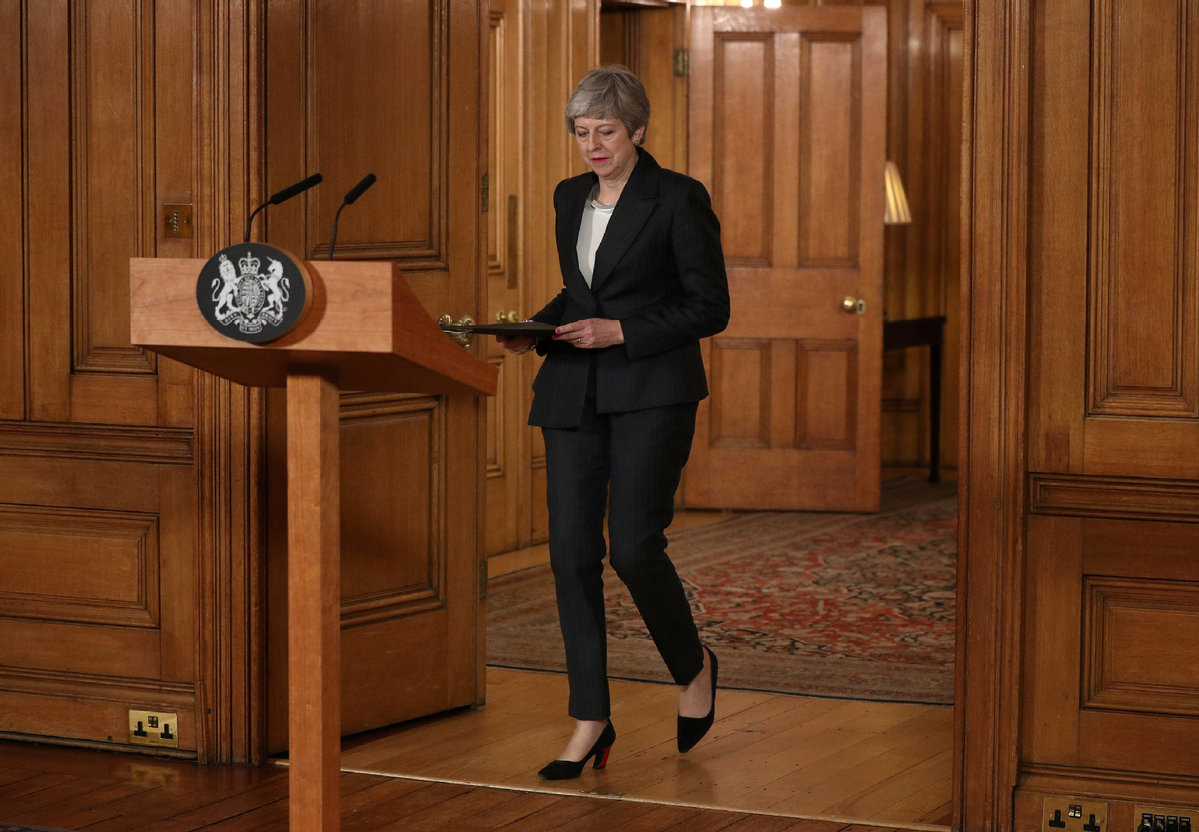May waits for EU ruling on extension
By JULIAN SHEA | China Daily Global | Updated: 2019-03-21 09:37

Wednesday March 20 marked 1,000 days since the United Kingdom's referendum decision to leave the European Union. Yet with just nine days to go until the scheduled departure date, latest developments in London mean precisely how and when it will happen are still no clearer.
Ahead of a meeting with EU leaders on Thursday, Prime Minister Theresa May wrote formally requesting them to extend the departure date from March 29 to June 30, in a bid to come up with withdrawal terms acceptable to Parliament. MPs have twice rejected her proposals.
Unanimous approval of all May's fellow EU leaders would be required for any extension. When asked about a short-term extension in an interview on German radio, speaking before May's letter had been received, European Commission President Jean-Claude Juncker said, "Those months would have to produce, as an end result, an agreement from the British Parliament to the (Agreement) text which is before them.
"If that doesn't happen, and if Great Britain does not leave at the end of March, then we are, I am sorry to say, in the hands of God. And I think even God sometimes reaches a limit to his patience."
The EU Commission's response to May's letter was that a June 30 date would be "legally and politically difficult", and that the preferred options of EU leaders would be either a delay until before May 23, or at least until the end of 2019. May had initially been expected to favor a longer-term extension.
If she returns from the summit empty-handed, it would significantly increase the likelihood of the UK leaving the 28-member trading bloc with no alternative arrangements in place for the thousands of pieces of legislation relating to the country's extremely close relationship with the EU.
An indication of the cost already being of Brexit uncertainty has come from a survey of financial services companies carried out by consultancy EY.
These companies have committed to moving around one trillion pounds ($1.32 trillion) of assets out of the UK and into Europe as preparation for a worst-case scenario. That figure has risen from two hundred billion pounds in the last such survey, carried out in January.
"The relocation of 7,000 high-paid finance jobs will inevitably hit the UK tax base," said Omar Ali, EY's head of financial services.
"Even using a conservative estimate … the direct loss to the Exchequer from employment taxes would be around 600 million pounds. In reality, the average salary and therefore tax loss is likely to be much higher."
























